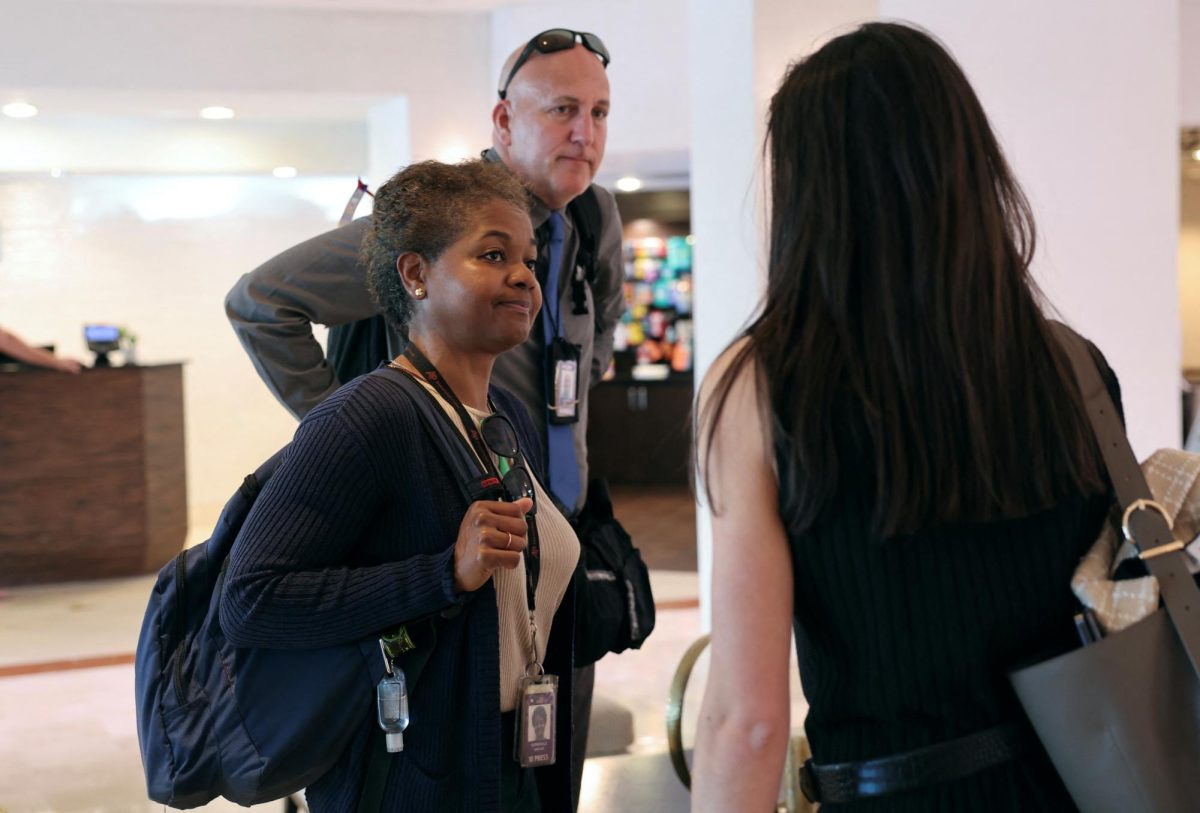In an era filled with misinformation and articles made solely for shock value, journalism is in a critical position.
In fact, “fake news” gets spread by actual people — not bots — 70% more often than true news does. Add to this to the actions of our current presidential administration, and the discussion of journalism losing its power in the digital age becomes even more complicated.
After attending the College Media Association’s Spring Conference this February, I was able to meet and speak with student journalists from multiple colleges across the country. All of them wondered about the future of journalism in such a dangerous time.
Even since the initial days after the election, news reporting has been challenged by many of those in power. Specifically, intimidation tactics have been used against college journalists using their first amendment rights.
During the CMA conference, the students from Indiana University’s newspaper, the Indiana Daily Student, spoke on the repercussions of writing an article about Trump winning the presidency. The article was unbiased, based on official quotes from Trump’s former allies voicing their opinions on his success.
However, even though the article aligned with [journalistic ethics](https://collegemedia.org/about/code-of-ethics/#:~:text=Advisers should%3A-,A.,and organizations advised%2C whenever possible.), the students at IDS were threatened by Micah Beckwith, lieutenant governor of Indiana, who responded to their article on X: “This type of elitist leftist propaganda needs to stop or we will be happy to stop it for them.”
While that is an extreme example, it reveals the state of delivering factual stories with the current politics of our country. Politicians in public office are either unaware of or are intentionally threatening the very tenets that America has valued for centuries. Our Constitution is the foundation of our country, and if we begin testing the limits of a few of our detrimental rights, nothing else is safe.
As a writer for The Mass Media, paying attention to trends in journalism is crucial for doing my job well. Seeing that our freedom of speech is being publicly challenged, especially by politicians, says a lot about the current values of our nation.
Along with the rise of AI and the rampant spread of misinformation, sharing the truth is becoming increasingly more important. The world needs the truth to steer people away from disingenuous paths.
The students at IDS showed pure resilience, refusing to cower under Beckwith’s threat. Even when intimidated and threatened by their state officials, they stood by the words they wrote as journalists. Their duty was to share news just as it happens, regardless of attempted scare tactics by those who don’t respect the amendments of our nation.
The Mass Media strives to enlighten our college population in these unprecedented times. No one should prevent our duty of pursuing the truth and sharing it with those who desire to listen.
As humans, we have an innate curiosity — a desire to intricately know the world around us — and journalism is a way to channel these passions. The truth is never easy to write nor easy to hear, but there simply is no other option for living an honest life.
The pursuit for truth doesn’t just apply to journalists. Many careers ask us to show up as our truest selves and stay aligned with our values. Honesty exists in all parts of our society, and even as individual citizens, committing to this goal is what allows us to grow as a nation. All of us witness inequality and social turmoil in our own lives; each one of us have stories that can bring our communities back together.


